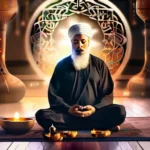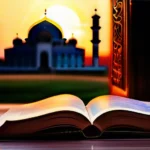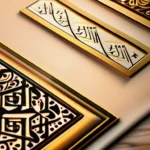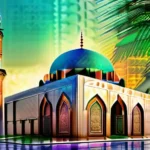Explore the beliefs, events, and significance of Islamic eschatology in this detailed guide.
Islamic eschatology is a fascinating and integral part of Islam that deals with the end times and the Day of Judgment. In this article, we will delve into the various aspects of Islamic eschatology, providing you with a comprehensive understanding of its beliefs, events, and significance.
The Concept of Eschatology in Islam
Eschatology, the study of end times and final events, holds a significant place in Islam. But what exactly does it mean to Muslims? Is it just a collection of prophecies or is there more to it than meets the eye?
The origins of eschatology in Islam can be traced back to the teachings of the Prophet Muhammad (peace be upon him). His discourses and revelations, documented as the Quran, offer profound insights into the nature of the end times. For Muslims, these events are not mere conjectures but are central to their faith, acting like signposts that guide them through life’s uncertainties.
One might wonder: How does Islamic eschatology compare with other religious beliefs? While many religions share some common themes about the final days, Islamic eschatology is unique in its detailed descriptions and the importance it places on individual responsibility. It presents a vision of a future where justice prevails and humanity faces ultimate accountability.
The concept of the Day of Judgment, or Qiyamah, symbolizes more than just an end; it’s a profound transformation that marks the beginning of a new era. It’s a metaphor for the final reckoning, where every deed is weighed and judged according to its merit.
How do these beliefs influence Muslims’ daily lives? They serve as a moral compass, urging individuals to lead righteous lives, seek forgiveness, and strive towards righteousness. The knowledge that there will be consequences for one’s actions can be a powerful motivator to live ethically and compassionately.
In essence, eschatology in Islam is not just about waiting for the end; it’s about living with purpose until the very last moment. It’s a call to action, a reminder of the importance of moral integrity and faith. As you delve deeper into these beliefs, consider how they resonate with your own values and what impact they might have on your life.
Key Events in Islamic Eschatology
When discussing key events in Islamic eschatology, one cannot help but wonder about the grand scale of these prophesied occurrences. These events are like chapters in an epic saga that Muslims believe will unfold at the end times. The Mahdi, a figure often referred to as the ‘Guided One,’ is perhaps the most anticipated character in this narrative. But who exactly is the Mahdi? Is he not just another name for the long-awaited savior, destined to bring peace and justice to the world?
The appearance of the Dajjal, a figure often described as a false messiah or antichrist, also looms large in these eschatological discussions. This enigmatic entity is seen as a symbol of evil, corruption, and chaos. But what does his presence signify? Is he not a metaphor for the destructive forces that have plagued humanity throughout history, hinting at the need for a greater moral awakening?
The Day of Judgment stands as the climax of this narrative. It represents more than just an end; it symbolizes a new beginning—a moment where every individual’s actions will be judged and their fate sealed. How do such beliefs shape our daily lives? Are we not all driven to seek righteousness, goodness, and truth in anticipation of that final day?
The journey from the emergence of the Mahdi to the confrontation with the Dajjal and finally to the Day of Judgment is a tale filled with wonder and dread. It challenges us to reflect on our role in this grand narrative, urging us to live each moment as if it were a prelude to a destiny we cannot predict but can surely influence.
The Role of Eschatology in Islamic Spirituality
How do eschatological beliefs shape the spiritual lives of Muslims? These profound teachings, like the intricate threads that weave through every aspect of faith, play a pivotal role in guiding their actions and aspirations. Just as a compass guides a ship safely through turbulent waters, eschatology provides a framework for navigating life’s uncertainties.
Imagine a vast garden where each believer is a steward tending to their unique plot. In this garden of faith, eschatological beliefs serve as the guiding principles that determine how they cultivate their spirituality. For many Muslims, these beliefs are not just abstract concepts but living realities that influence their daily choices and interactions.
For instance, the belief in Jihad al-Nafs, or the inner struggle against one’s own desires, is deeply rooted in eschatological teachings. This struggle is seen as a continuous battle towards self-improvement, much like a runner who constantly pushes their limits to reach the finish line of perfection. These beliefs act as a motivating force, urging believers to remain steadfast on their spiritual journey.
Moreover, the idea of Dukhaan, or the smoke test in the Hereafter, serves as a metaphor for life’s trials and tribulations. Just as smoke rises through various stages until it reaches its final form, so too do our actions and intentions during this life have consequences that are revealed on Judgment Day. This belief instills a sense of responsibility and accountability, making every moment count in the quest for righteousness.
Eschatological beliefs also provide solace in times of hardship, much like a beacon in the darkness. The promise of Mahdi, or the Guided One, represents hope for a savior who will bring justice and peace, much as a lighthouse guides ships through treacherous seas. This belief can be a source of comfort, reminding believers that even in their darkest moments, there is light at the end of the tunnel.
In essence, eschatology is not merely a series of future events but a comprehensive guide to living a righteous and fulfilling life. It shapes the very fabric of Islamic spirituality, weaving together concepts of justice, hope, and accountability into a tapestry that guides believers through life’s challenges.
Interpretations of Islamic Eschatology
As we delve into interpretations of Islamic eschatology, it becomes clear that this complex and multifaceted subject has been approached in diverse ways by different Islamic traditions. Sunni, Shia, and Sufi perspectives offer a rich tapestry of beliefs and events that frame the end times.
Sunni Islam generally views eschatology through the lens of prophetic tradition and Quranic verses. For many Sunnis, the Day of Judgment is seen as an ultimate reckoning where every individual’s deeds will be judged by Allah. This belief often influences their daily spiritual practices and ethical conduct.
In contrast, Shia Islam has its own unique interpretations, particularly through the concept of Imamate. Shia Muslims believe in a series of Imams who are divinely guided leaders after the Prophet Muhammad. Some Shia beliefs suggest that the Hidden Imam, or Mahdi, will return to lead the faithful towards a utopian society before the Day of Judgment.
The Sufi perspective on eschatology is more mystical and often focuses on spiritual ascent rather than literal interpretations of the end times. For Sufis, the journey towards God is akin to preparing for the final destination. Their practices, such as meditation and dhikr (remembrance of Allah), are seen as ways to align with divine will and prepare for the ultimate spiritual union.
These differing viewpoints reflect the diversity within Islamic eschatology, each providing a unique lens through which Muslims can understand their role in the world and beyond. By exploring these various interpretations, we gain a deeper appreciation of how eschatological beliefs shape not only individual faith but also communal practices and social structures.
The Impact of Eschatology on Daily Life
How does believing in the end times shape your daily actions? For Muslims, Islamic eschatology isn’t just a distant concept; it deeply influences their lives. Imagine walking down a bustling street, the hum of everyday life around you, but with the backdrop of knowing that one day, everything will change. This awareness doesn’t weigh them down, but rather guides their every step.
Many Muslims are motivated by the idea of jihad al-nafs, or inner struggle, to cleanse themselves and align their lives with Allah’s will. This isn’t just about abstaining from sins; it’s a comprehensive approach that encompasses everything from charitable acts to honest dealings in business. Could your daily choices be seen as steps towards preparing for the hereafter?
The belief in al-mahdi, the rightly guided one who will lead Muslims, also plays a significant role. This figure, often seen as a savior, brings hope and a sense of purpose to many. How would your life be different if you knew that every good deed could contribute to his coming? Would you approach challenges with more resilience or see difficulties as opportunities for growth?
Eschatology also shapes social and communal interactions. Muslims often engage in acts of dhikr, or remembrance, which can be done individually but is deeply powerful when shared among the community. These gatherings are not just about spiritual uplift; they are a reminder that everyone has a role to play until the day comes. How do you see your role in this grand tapestry of life?
The belief in al-mawt, death, is also integral. It serves as a constant reminder of mortality and the need for preparation. This can lead to a sense of urgency in seeking knowledge, improving oneself, and making amends before it’s too late. Do you find yourself more mindful of your time and priorities because of this belief?
In essence, Islamic eschatology is not just about waiting; it’s about living fully aware of the divine plan. It’s a metaphor for a life lived in balance between faith and action. How do you integrate these beliefs into your daily routine? The impact of eschatology on Muslims’ lives is profound, shaping their aspirations and actions every day.
The Significance of Eschatology in Modern Times
As we navigate through the complexities of modern times, the question arises: How do the beliefs and events described in Islamic eschatology influence contemporary Muslim societies? Eschatology, the study of the end times, holds a profound significance beyond mere religious doctrine; it shapes the very fabric of daily life and community dynamics. Imagine if you will, a city built upon the firm belief that every action today could be pivotal for tomorrow’s grand destiny—a place where every decision is scrutinized through the lens of its potential impact on the hereafter.
The significance of Islamic eschatology in modern times lies not only in its teachings but also in how it resonates with the global Muslim community. It provides a framework for understanding the interconnectedness of individual actions and societal well-being. For instance, the belief in Rasul (the Prophet), who serves as both a historical figure and an eternal guide, inspires Muslims to strive for justice and compassion in their interactions, fostering a society that mirrors his example.
Moreover, eschatology addresses the challenges of our time through its emphasis on accountability. The idea that one’s life will be judged by Allah after death instills a sense of responsibility towards moral and ethical conduct. This could be likened to a personal GPS guiding individuals toward paths of righteousness, even in the face of societal pressures or economic hardships.
The relevance of eschatology extends beyond individual behavior; it also influences collective identity and unity among Muslims worldwide. Shared beliefs about Jahannam (hell) and Firdaus (paradise) create a common ground that transcends cultural differences, reinforcing the idea that all Muslims are part of one larger community with a shared destiny.
In essence, Islamic eschatology acts as a constant reminder to uphold values like honesty, charity, and brotherhood. It challenges us to reevaluate our priorities and strive for a more just and compassionate world, where every action counts towards the greater good. As we continue to face the uncertainties of modern life, the teachings of eschatology offer both solace and motivation, guiding Muslims on their eternal journey.
Conclusion
 By the end of this article, you will have gained valuable insights into Islamic eschatology and its role in shaping the faith. Remember, understanding eschatology can help deepen your spiritual connection and provide a sense of purpose in your life as a Muslim.
By the end of this article, you will have gained valuable insights into Islamic eschatology and its role in shaping the faith. Remember, understanding eschatology can help deepen your spiritual connection and provide a sense of purpose in your life as a Muslim.











